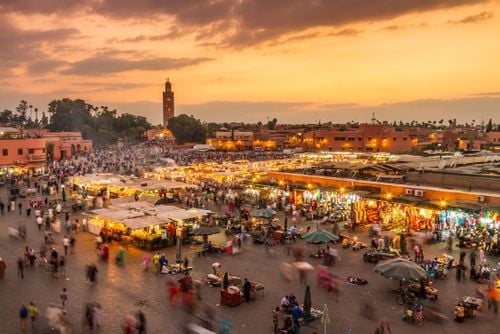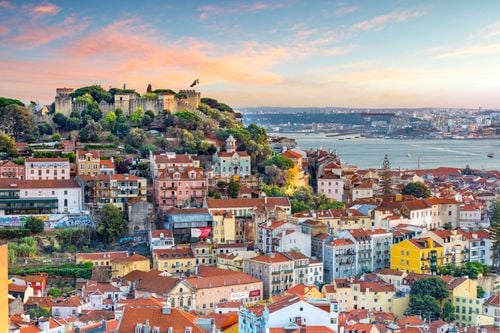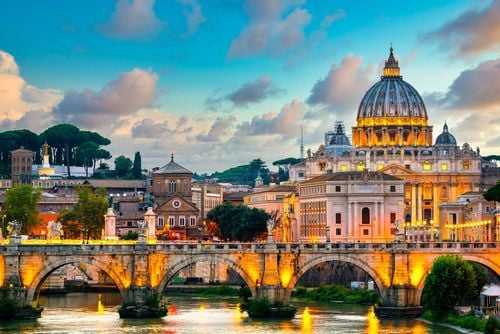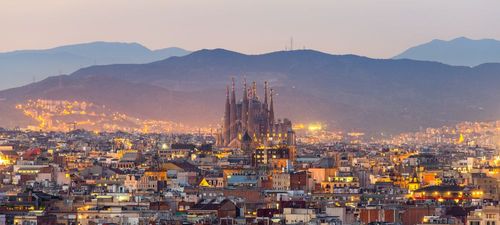Why choose between the mountains and the sea?
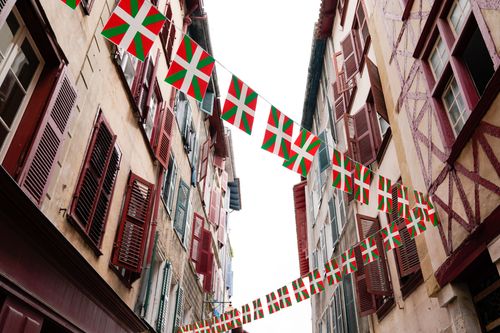
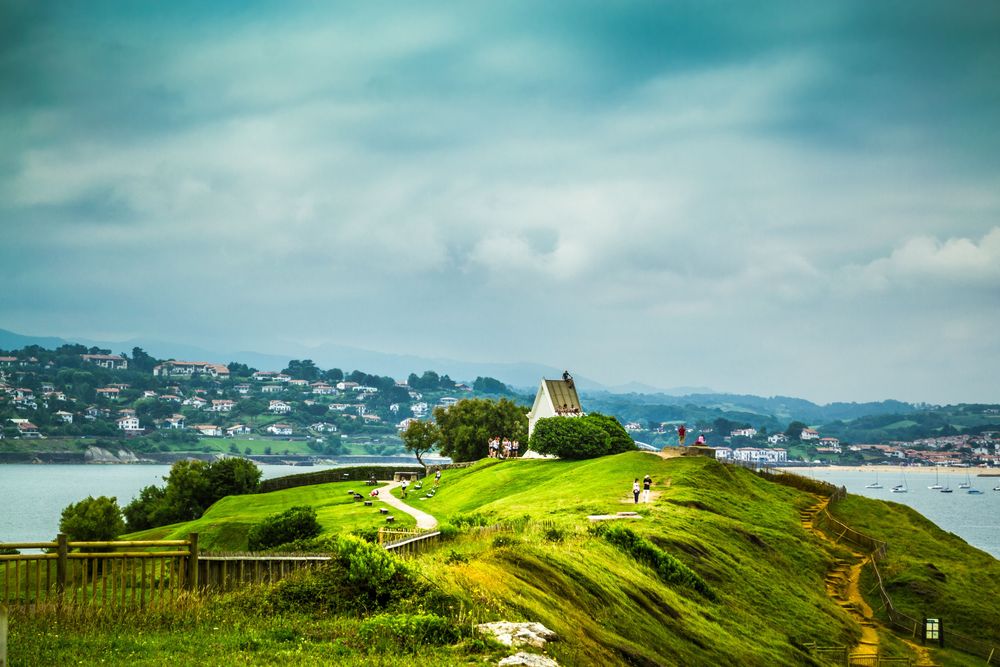
Why choose between the mountains and the sea?
In the verdant landscapes of the Pays-basque, at the gateway to Spain, the mountains plunge into the ocean and the Celtic past rubs shoulders with the Occitan heritage. It's a land of contrasts, with a character all its own, whether in its history, its landscapes, varying from the craggy reefs of the coast to the thick forests of La Soule, or the inimitable flavours of its gastronomy. One thing's for sure: the Basque Country is a land that leaves no one indifferent! With a temperate climate influenced by the Gulf Stream, the Basque Country enjoys very mild temperatures all year round. On the other hand, the weather can be rainy, which is what gives the landscapes their distinctive soft green colour, whatever the season. The most surprising thing about a stay in the Basque Country is the exceptional variety of panoramas. A visit here is like a journey.
The adventure begins on the coast, dominated by the imposing silhouette of the Pyrenees, with its rocky coves and sumptuous waves breaking on the beaches. The seaside resorts of Saint-Jean-de-Luz, Biarritz, Anglet, Bidart and Hendaye, which include the astonishing Abbadia observatory castle, celebrate surfing culture and the art of taming the ocean, just like their Landes neighbours. The Basque seafront also cultivates top-of-the-range tourism, and lovers of casinos, golf courses and luxury hotels will be in heaven!
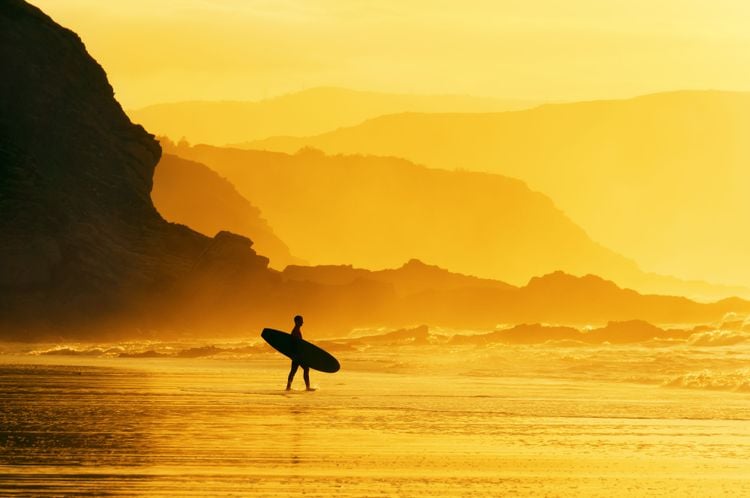
A surfer on a beach in the Basque Country
- © Mimadeo / ShutterstockAs you move away from the coast, the scenery changes. But what a scenery! In the rolling countryside, you'll find a succession of charming villages where you can admire the euskal etxe, typical Lombardy houses in the characteristic red and white of the Basque country. 5 of these hamlets, Navarrenx (a stage on the famous Pilgrim's Way to Santiago de Compostela), Sare, La Bastide-Clairence, Ainhoa and Saint-Jean-Pied-de-port and its famous citadel, have been awarded the "Most Beautiful Villages in France" label, and it's easy to see why! Their maze of flower-filled lanes, nestling with incredible little restaurants and delightful boutiques, plunge visitors into an authentic and exotic atmosphere for an unforgettable stroll.
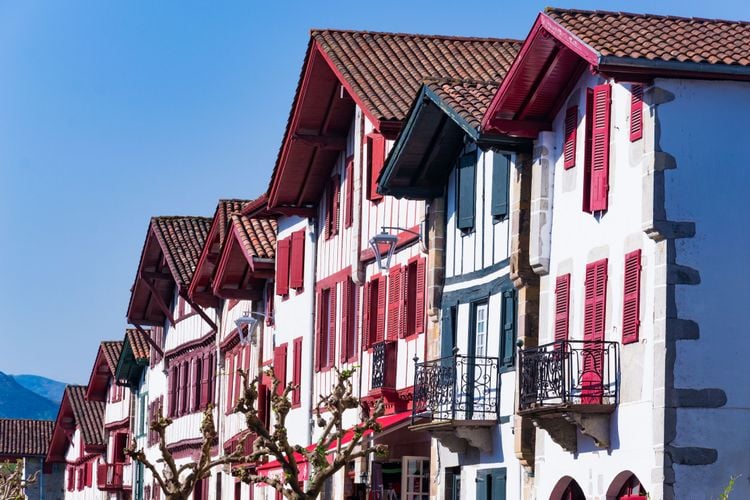
Traditional Lombardy houses in the village of Ainhoa
- © Alberto Giron Photography / ShutterstockFor nature lovers and hikers, the journey continues in the province of Soule, the summit of the French Basque Country, with its deeply rooted traditions of song and dance, its mouth-watering sheep's milk cheese with black cherry jam, and its magnificent mountain landscapes. These include the famous Holzarte suspension bridge, hovering above the forest and offering one of the most breathtaking views in the region, as well as the caves of Isturitz and Oxocelhaya, superb prehistoric sites listed as Historic Monuments. Not forgetting the enchanting Kakuetta Gorge, a real paradise for canyoning enthusiasts. You can also take a stroll around the village of Mauléon, where the emblematic Basque espadrilles are made. What colour will your pair be?
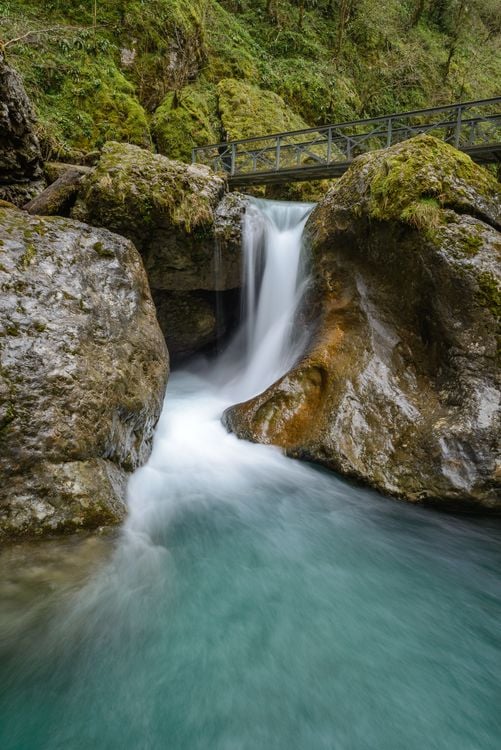
Cascade dans les gorges de Kakuetta
- © Alberto Loyo / ShutterstockWith its exceptionally rich culinary tradition, the Basque Country is a favourite destination for gourmets of all ages. In the village of Espelette, for example, you can wander between the white houses covered in the famous chilli pepper for which the town is famous. Between the chocolate, veal axoa, Basque chicken, Basque cake filled with almond cream or black cherries and Bayonne ham, whose reputation is well established, your taste buds will travel as much as you do!
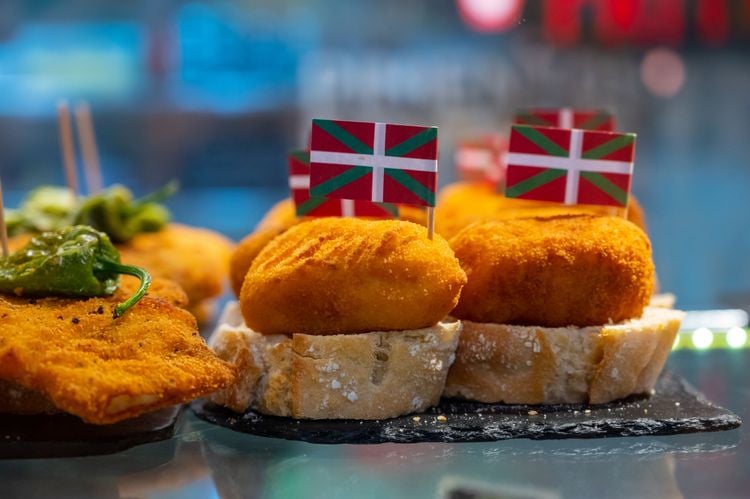
Basque specialty with octopus croquette
- © barmalini / ShutterstockWhen it comes to activities to enjoy with family or friends, the choice is equally abundant! From surfing on the coast to hiking, mountain biking, climbing, rafting and all the white-water sports you can enjoy in the superb gorges offering spectacular panoramic views, there's something for everyone who loves the great outdoors. That said, if you're already feeling tired just looking at all the sporting possibilities, don't panic! With its rich cultural heritage, the Basque Country will also delight lovers of art and history, who can visit the many castles, museums and other historic sites dotted around the region. Last but not least, the festive Basque culture, with its endless joy and conviviality, will appeal to all tastes. Summer in the Basque Country is an almost uninterrupted series of festivals, balls and celebrations, including the not-to-be-missed Fêtes de Bayonne. To the sound of traditional music, amid the mouth-watering aromas of local cuisine, the atmosphere is guaranteed!
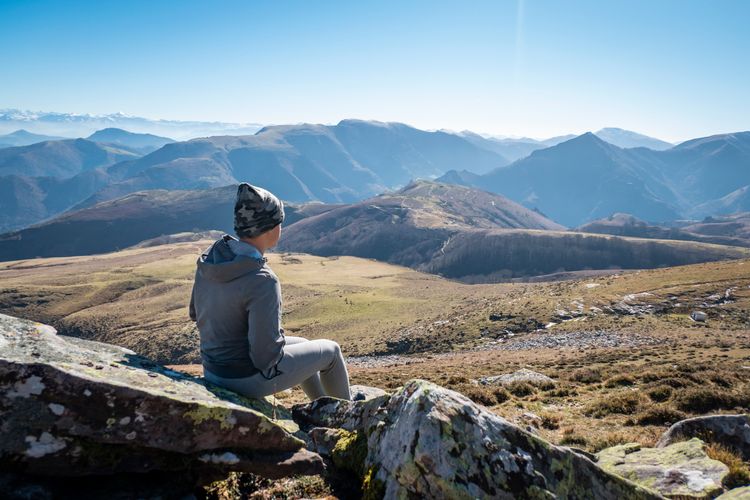
A hiker in the Artzamendi mountains, Basque Country
- © lone wolf7 / Shutterstock
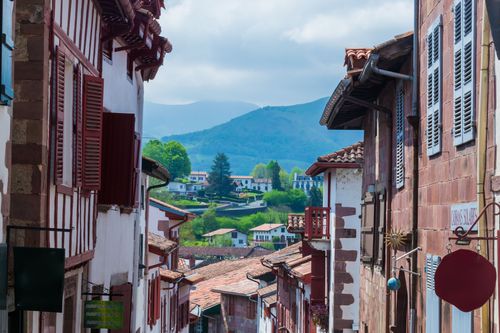
To get to the Basque Country by plane, you'll need to use Biarritz airport (14 direct destinations). By train, the Basque Country's TGV stations are Bayonne, Biarritz, Saint-Jean-de-Luz, Hendaye and Irun. The main stations served by Corail or TER trains are Ustaritz, Cambo-les-Bains and Saint-Jean-Pied-de-Port. Numerous long-distance bus routes also pass through Biarritz and Bayonne. To get to Biarritz by car, take the A6, then the A10 to Bordeaux, then the A63 from Bordeaux, then the N10. Biarritz is also served by the A64 motorway.
When it comes to accommodation, there's no shortage in the Basque Country! Those for whom holidays are synonymous with luxury and jacuzzis will find what they're looking for in the very chic hotels along the coast. For the rest of us, there's a wide choice of family-run inns, charming guest houses and campsites in the heart of the countryside for a total immersion in the Basque Country.
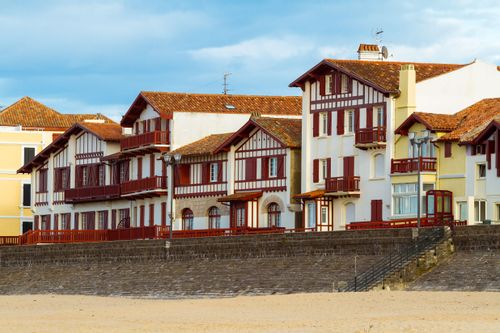
With its maritime influence, the climate of the Basque Country is mild and temperate, and temperatures are rarely scorching, even in summer. That said, it also has one of the highest rainfall rates in France, particularly in spring. The best time to visit the region is from June to August or the first half of September. That's when you're least likely to encounter wet weather. That said, even at the height of the summer season, you can expect a few spells of rain, and some slightly cool nights on the coast and colder nights in the central inland regions. So as well as shorts and a swimming costume, don't forget to pack a thick jumper and a k-way, especially if you're planning to sleep in a tent! Autumn in the Basque Country may not have weather like the Bahamas, but it is the season when the countryside is decked out in the most sumptuous colours. Superb orange-yellows add relief to the lush green valleys - a veritable chromatic festival for the eyes!
By car :
The car remains a good means of transport for getting around freely, especially in the most remote parts of the region, notably the province of Soule. However, it should be noted that traffic is very difficult on the Basque coast in summer, particularly around the town of Biarritz, which is notorious for its terrible traffic jams.
There are many car hire companies in the area, including My Cars 64, which is open 7 days a week and located at Biarritz airport, offering a wide choice of electric and petrol vehicles.
At Bayonne station, you'll find Avis Bayonne, open Monday to Saturday, 9am to 12.30pm and 1.30pm to 5pm.
If you want to be even more independent and not have to worry about accommodation, why not hire a van? Whether you're a couple, a family or a group of friends, treat yourself to a wonderful experience of roaming between the sea and the mountains, as close as possible to Basque nature. At Van away Pays basque, located in Biarritz, you can hire fully-equipped vans (fridge, stationary heating, water, crockery, etc.) for your adventure. There are several vans to choose from: the Malaga (2-seater), the California (4-seater) and the Ibiza (5-seater). Let the road-trip begin!
Van Away is open Tuesday to Saturday, 9.30am to 12.30pm and 2.30pm to 5.30pm. Information on 06 14 79 30 91.
By coach :
This is undoubtedly one of the most practical and least expensive ways of getting around the Basque Country. The Txik Txak transport network serves most of the towns and villages in the region and costs €1.20 for a single ticket, or you can buy a 7-day pass for the modest sum of €13. You can't beat that!
Going hiking in the Basque Country? Don't forget your Makhila! More than just a walking stick, it's a work of craftsmanship based on ancestral know-how and made from precious materials. A true emblem of Basque culture! To buy a Makhila, head to Larressore where you'll find the Makhila Ainciart Bergara, the oldest of the Makhila workshops.
explore Try out our comparators
It is Easy to travel
